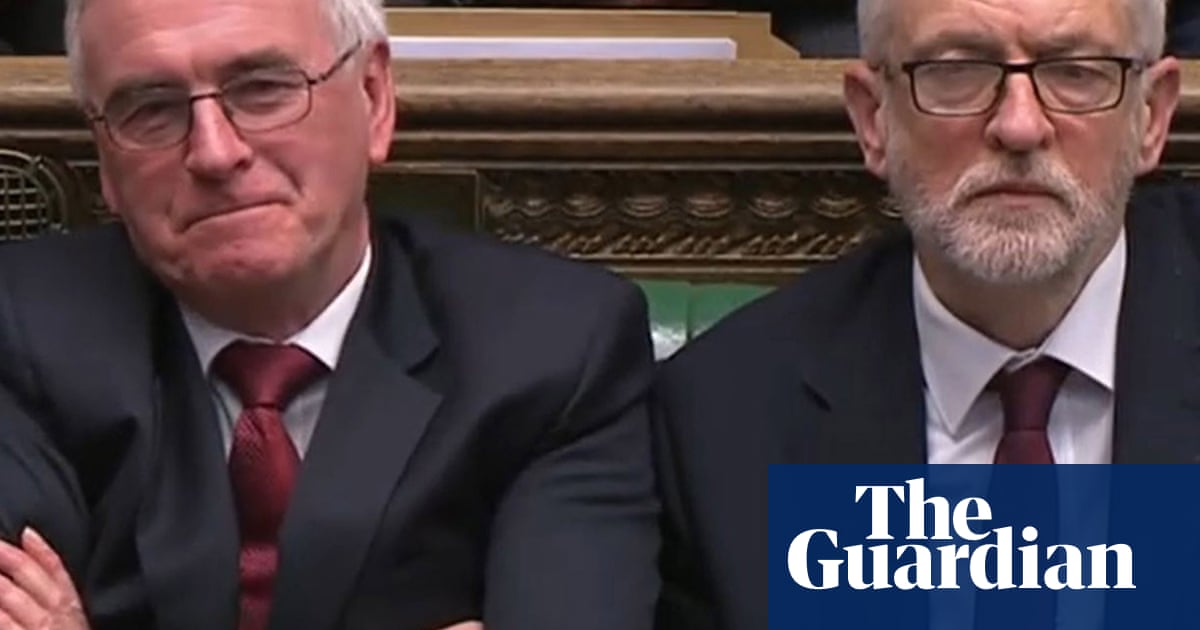John McDonnell clearly takes responsibility, along with Jeremy Corbyn, for the “policy platform” they developed together in the hope that “eventually Labour would return to power” (Starmer and co are trashing Labour’s legacy. We must take back control of our party – before it’s too late, 28 May). Throughout his article, McDonnell argues for an alternative strategy to that being followed by the current prime minister, Keir Starmer.
At no stage does he acknowledge that, when standing on this Corbyn/McDonnell policy platform,Labourlost two general elections. By losing these elections they condemned this country to seven years of Tory rule – seven years during which the Tories wreaked havoc. Yet I note that not once in his piece does McDonnell offer any kind of apology for these years of mayhem.
Starmer is at least attempting to put this right. He changed the party’s policies in order to make it more electable, and he was (thankfully) successful. Now let him get on and finish the job. Passing “control” back to McDonnell and his sidekicks will merely send Labour back into the wilderness.Shaun SoperMidhurst, West Sussex
John McDonnellhas identified Labour’s malaise, which, he reminds us, affects not just its members in No 10 (hubris) but the entire movement (disillusionment). Almost a year ago seven MPs – including him – were suspended when they voted against maintaining the two-child cap on benefits, and after Labour’s recent U-turn we can only look forward, in hope, to their reinstatement. But, as he warns us, we face a looming crisis.
He is right to characterise how Labour is governing as “timid”. Its tone-deaf acceptance of corporate gifting was dismissed as trivial sniping by the left. Try citing that as an excuse when attempting to retain support on the doorstep and being met with “they’re all the same” while those desperate for change look over your shoulder at Reform.
The number of MPs who vote with the government, or abstain, when it attempts to cut disabled people’s benefits will be a measure of how deeply unwell the party has become.Dr Peter ManganBeckenham, Kent
John McDonnell’s criticism of the Labour government may well be music to the receptive ears of people frustrated by a lack of progress on many issues of concern to those in the labour movement and beyond in these still early days of Starmer’s government.
I’m reminded of the early years of Tony Blair’s government, during which so many felt frustrated with progress. But look at how that changed and bore fruit, to the extent that by 2010 Labour was deemed an overspending, reckless, leftish government.
In 2010, in the dog days of Gordon Brown’s tenure, I recall sharing a platform with John McDonnell, who castigated Brown as a rightwing monetarist who had failed the labour movement and the people. What we would all give to have those levels of social spending now.Trevor HopperLewes, East Sussex
Like John McDonnell, I am in my 70s, a lifelong Labour voter, and I have been a member of the party for more than 40 years. I would just note that every Labour government in my lifetime, including the great Attlee government, has been accused of betrayal and abandoning principles, mainly by people who claim to be on the left. I would also note that, despite the criticisms, it is Labour governments that have delivered almost every social advance and economic improvement in the lives of ordinary British voters over those more than seven decades.Alex GallagherLargs, North Ayrshire
Bridget Phillipson says it is the moral mission “of this Labour government to ensure that fewer children grow up in poverty” (Report, 27 May). What’s with “fewer”? Shouldn’t it be that no children grow up in poverty, or am I missing something?Simon Lauris HudsonPontefract, West Yorkshire
Have an opinion on anything you’ve read in the Guardian today? Pleaseemailus your letter and it will be considered for publication in ourletterssection.
